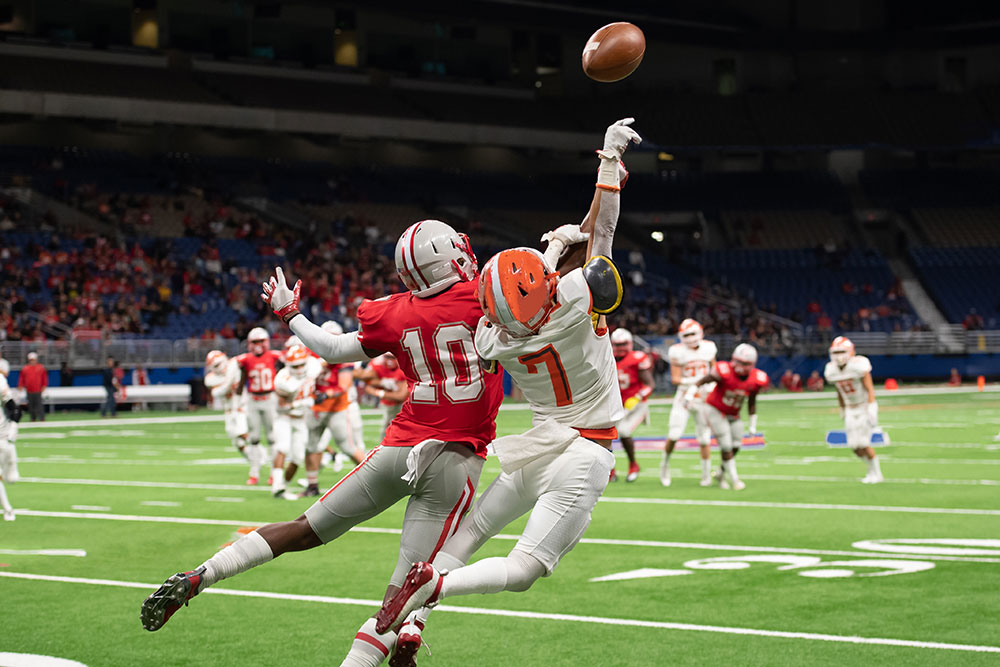
Football is a very popular spectator sport. It is also one of the most physically demanding sports, and there is a significant risk of injury. Whether you’re playing in the NFL or for your high school team, there are ways to decrease the risk of injuries. As Dr. Richard Cunningham of Vail-Summit Orthopaedics & Neurosurgery (VSON) explains, “Injury prevention is key to maintaining your performance and prolonging your career on the field.” Let’s dive into some key tips on how to avoid the most common football injuries, particularly focusing on knee injuries such as ACL tear, and shoulder injuries such as shoulder dislocations.
Common Football Injuries and Their Impact
Football players are prone to a range of injuries, from minor strains to more severe injuries such as fractures or ligament tears that may require surgery and have a more extensive recovery. Some of the most common injuries seen in football include ACL injuries and shoulder dislocations. ACL injuries in the NFL can be career ending. The anterior cruciate ligament (ACL) is crucial for knee stability. Surgery to treat ACL tears and the rehab that follows can sideline an NFL player for a full year. Similarly, shoulder injuries sustained in football can limit a player’s ability to tackle or throw, significantly affecting performance on the field.
How to Prevent ACL Injuries and Other Knee Issues
Preventing ACL injuries is a priority for NFL athletes and for athletes at all levels. Dr. Cunningham advises that “proper training and conditioning are the first steps in preventing football knee injuries.” Strengthening the muscles around the knee, including the quadriceps, hamstrings, and glutes, helps support the knee joint and reduce stress on the ACL. Additionally, players should focus on improving their agility and balance to avoid awkward landings that commonly lead to ACL tears. Having a strong core and landing on a flexed (bent) knee over your center of gravity instead of landing “in the back seat” with your knee straight or extended is critical to preventing an ACL tears. For this reason, jump and landing mechanics should be practiced. Lineman should consider wearing hinged knee braces as they commonly “get rolled up on” where their knee sustains an inward or valgus stress which can tear the MCL and possibly the ACL. In these situations, a brace can prevent a severe knee injury.
Shoulder Protection and Injury Prevention
Football shoulder injuries are another common problem, particularly in players who frequently tackle or block. Shoulder injuries can range from minor strains to AC joint separations, clavicle fractures or shoulder dislocations. Dr. Cunningham explains, “Proper form and technique when blocking or tackling are important for preventing football shoulder injuries.” Strength training focused on the rotator cuff and shoulder girdle musculature can help players avoid certain injuries. Wearing the right protective gear, such as shoulder pads, is also essential to minimize impact and reducing the risk of dislocations, shoulder separations, or fractures. Players who have sustained a shoulder dislocation or subluxation may be able to rehab their shoulder and then finish out their season and prevent another injury by wearing a Sully brace that prevents recurrent dislocations by restricting the shoulder ability to go into forced abduction and external rotation.
The Importance of Proper Warm-Up and Conditioning
A well-rounded warm-up routine can significantly lower the risk of football knee injuries and football shoulder injuries. Dynamic stretching, agility drills, and muscle activation exercises prepare the body for the demands of football. Dr. Cunningham notes, “it’s essential to take the time to properly warm up before each game or practice. This not only boosts performance but also helps prevent injuries.” Additionally, incorporating conditioning exercises that mimic the explosive movements of football can help athletes learn healthy movement patterns and reduce their risk of injury.
Conclusion
Preventing football injuries requires a combination of strength training, mastering proper technique, and wearing the correct protective equipment. Whether you’re in the NFL or in high school and trying to prevent an ACL tear or a shoulder dislocation, a proactive approach is essential for staying safe on the field. By following these tips and consulting with an orthopedic specialist like Dr. Cunningham after an injury, you can continue to play the game you love. Stay safe, stay strong, and keep your skills sharp.
For more advice on preventing football injuries or to schedule an appointment after a football injury, contact Dr. Cunningham and his team today!
